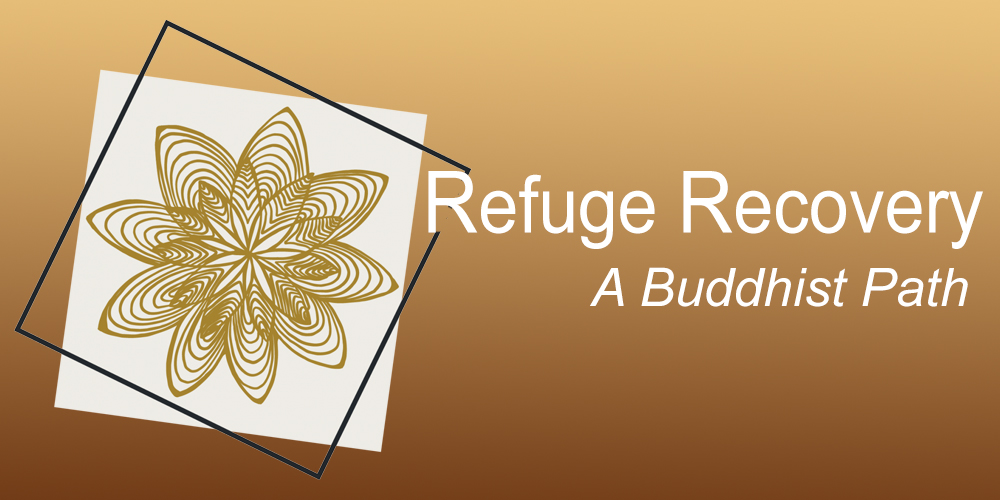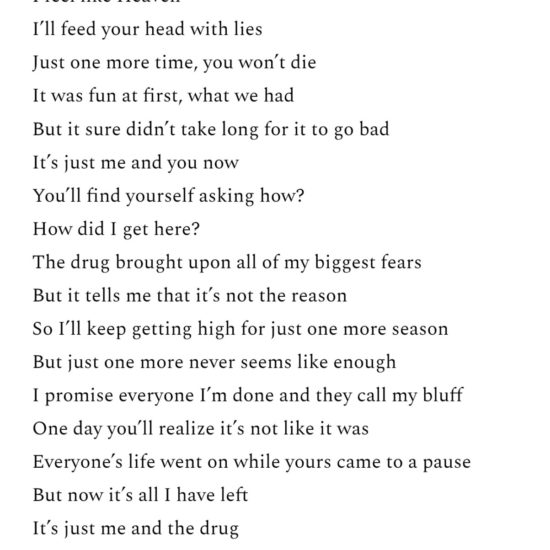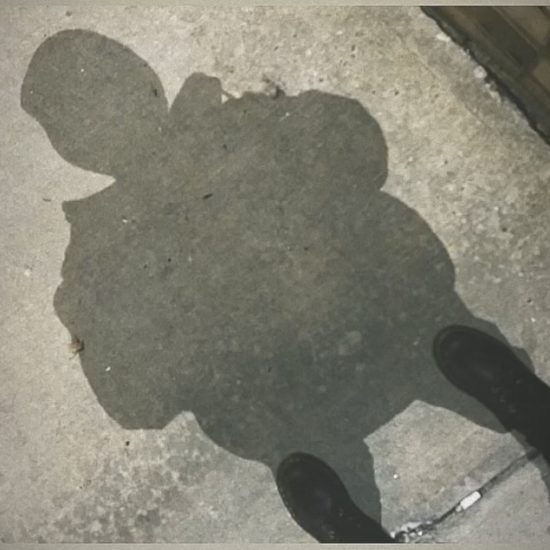
Refuge Recovery is grounded in the belief that Buddhist principles and practices create a strong foundation for a path to freedom from addiction.
This program is an approach to recovery that understands:
All individuals have the power and potential to free themselves from the suffering that is caused by addiction. We feel confident in the power of the buddha’s teachings, if applied, to relieve suffering of all kinds, including the suffering of addiction. This is a process that cultivates a path of awakening, the path of recovering from the addictions and delusions that have created so much suffering in our lives and in this world.
Refuge Recovery believes that training our hearts and minds to see clearly and respond to our lives with understanding and non-harming can free us from addiction. In the beginning, some of these practices may seem confusing or counter-instinctual, and indeed some of them are, but we believe they provide a clear path to freedom.
Whether this path is familiar to you or new to you, we all benefit from the support of a community of peers who share this journey. Refuge Recovery seeks to support all those seeking recovery from addiction by building an extensive and comprehensive network of Refuge Recovery communities.
Addiction Creates Suffering
The Cause of Addiction is Repetitive Craving
Recovery is Possible.
The Path to Recovery is Available.
The Four Foundations of Mindfulness:
1. Mindfulness of body/breath
2. Mindfulness of feelings
3. Mindfulness of mind states
4. Mindfulness of mind objects (truth)
Heart Practice Meditations:
1. Kindness: Towards all experience
2. Compassion/forgiveness: Towards the suffering we experience, and have caused.
3. Appreciation: Towards pleasure
4. Equanimity: Understanding the reality of ongoing change

THE EIGHTFOLD PATH TO RECOVERY
This is an abstinence-based path and philosophy. We believe that the recovery process begins when abstinence begins. The eight factors of the path are to be developed, experienced and sustained. This is not a linear path and, as such, does not have to be taken in order; rather, all of the factors will need to be developed and applied simultaneously. This is a guide to having a life that is free from addiction. The eight-fold path of recovery is intended to be maintained throughout one’s lifetime:
Understanding
We understand that recovery begins when we renounce and abstain from all substances or addictive behaviors regardless of specific substances we have become addicted to. Forgiveness, non-harming actions, service and generosity are a necessary part of the recovery process. We can’t do it alone; community support and wise guidance are an integral part of the path to recovery.
We begin to open to and acknowledge the reality of our situation and come to terms with the reality that life is an ongoing process of change, on-going difficulties and we begin to see this process as something that is not happening to “us”; we move from being in a state of reacting to developing an awareness that can respond to the ups and downs of our lives. We begin to take responsibility for the relationship that we have to our own life experience.
Intention
We begin to move towards a lifestyle that is rooted in non-harming by establishing clear intentions and work to change our relationship towards the mind’s unwholesome tendencies and habits. We intend to meet all pain with compassion and all pleasure with non-attached appreciation. The practices of non-harming both internally and externally become a foundational part of daily life
Communication/Community
We take refuge in the community as a place to practice wise and skillful communication and to support others on their path. We practice being honest, wise and careful with our communications, asking for help from the community, allowing others to guide us through the process. Practicing openness, honesty and humility about the difficulties and successes we experience.
Action
We abstain from all substances and behaviors that could lead to suffering. We practice forgiveness toward all people we have harmed or been harmed by, including ourselves, through both meditative training and direct amends. Compassion, non-attached appreciation, generosity, kindness, honesty, integrity and service are our guiding principles.
Livelihood/Service
We begin to look at our relationship to money. We try to be of service to others when ever possible, being generous with our time, energy, attention and resources to help create positive change. We try to secure a source of income/livelihood that causes no harm.
Effort
We commit to the daily disciplined practices of meditation, yoga, exercise, wise actions, kindness, forgiveness, generosity, compassion, appreciation and moment-to-moment mindfulness of feelings, emotions, thoughts and sensations. To develop these skills requires time and patience. It is important to begin to understand how to apply the appropriate action or meditation practice in any given situation or circumstance. We will need to develop the willingness and discipline that is required to stay with it, and to keep going when we make mistakes.
Mindfulness/Meditations
We develop wisdom and understanding through practicing formal mindfulness meditation. This leads to seeing clearly and healing the root causes and conditions that lead to the suffering of addiction. We practice present-time awareness in all aspects of our life. We move towards taking refuge in the present moment; to engage whole-heartedly in our lives as it unfolds in the here and now. We begin to develop a daily sitting practice of mindfulness and heart practices. We make a commitment to sitting at home and with others.
Concentration/Meditations
We develop the capacity to focus the mind on a single object, such as the breath or a phrase, training the mind through the practices of loving-kindness, compassion and forgiveness to focus on the positive qualities we seek to uncover and we utilize concentration at times of temptation or craving in order to abstain from acting unwisely.
THE PATH TO RECOVERY
We are asked to embrace the reality of cause and effect (karma). All of our actions have consequences. We know that, but we rarely consider this reality when we engage with life. We often simply ignore or pretend that we can get away with all types of habits and actions that we know cause harm to ourselves and to others.
When we enter this recovery process we need to be aware of this reality, and start to take responsibility for our experience. Meditation practice allows us to look at the internal habits and thoughts of our own mind.
Developing mindfulness is the most effective way to see this process. We can begin to get a sense of our relationship to pleasant and unpleasant experience, how this affects our habits of craving and in turn leads to grasping, clinging and attachment: This process is the basis of addiction.
No one can recover for you. We take refuge in the fact that we have the power to do so. You have to do the work yourself. Addiction is not your fault. Addicts have just developed a strategy for living that no longer works. We have become caught up in a habitual cycle that leaves us in a state of suffering and confusion.
https://refugerecovery.org/about#toggle-id-8









